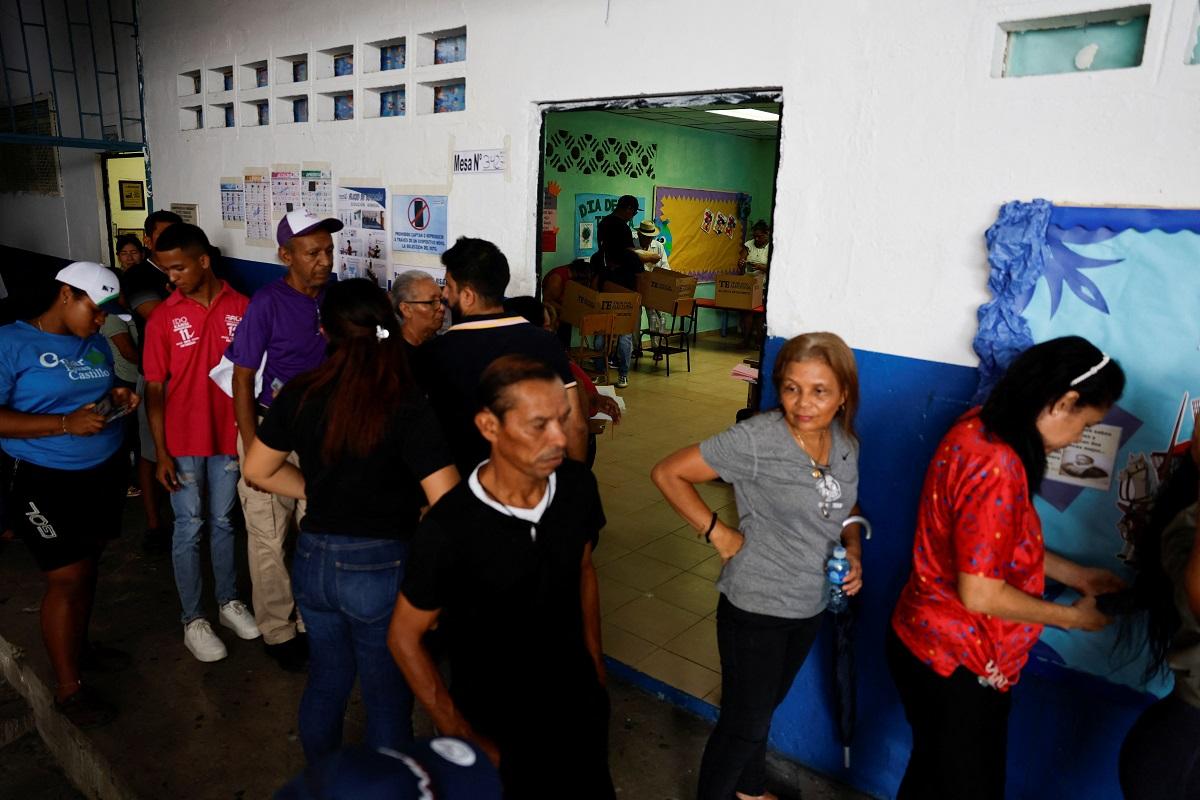Panama votes to elect new president in tight elections

PANAMA CITY — Panamanians began voting in Sunday's general election to choose one of eight contenders to be the nation's next president in a race where much of the attention has been focused on a corruption-tainted former president holed up in Nicaragua's embassy.
Following weeks of campaign events that featured catchy reggaeton songs and popular entertainers, over 3 million voters will decide who is best placed to fix Panama's pressing economic problems, tackle corruption and restore the country's reputation as an investment haven.
Jose Raul Mulino, a former minister who replaced popular ex-president Ricardo Martinelli on the ballot after Martinelli was barred from running due to a money laundering conviction, is leading in opinion polls.
Mulino has promised to usher in prosperity and to keep out of jail Martinelli, who has played a key role in the elections from within the walls of Nicaragua's embassy in Panama City.
Nicaragua granted the former leader asylum but Panamanian authorities have blocked him from leaving the country. Mulino visited Martinelli at the embassy after casting his vote.
Romulo Roux, in his second bid to win the presidency, and ex-president Martin Torrijos have alternated between second and third place. Trailing closely behind is Ricardo Lombana, who also ran in the past election, and current vice president Jose Gabriel Carrizo.
"My hope is that the new government will face corruption and poverty. I hope that this time they keep their promises, otherwise they will have to deal with the people," said Amalia Brown, 80, a retiree, after casting her vote.
Panama's electoral rules do not require a run-off, making Sunday's result final. Campaigns have said they will send volunteers to the polls to oversee voting and ensure a fair election.
No single party is forecast to win control of the legislature, where 885 seats are up for grabs.
Lawmakers across different parties who backed a controversial government contract with Canadian miner First Quantum have faced a backlash that could hurt their support.
Many Panamanians took to the streets last year to protest the Cobre Panama mine contract, which opponents argued lacked environmental guarantees and was riddled with corruption. Panama's top court ruled the contract unconstitutional in November.
Panama's next government will have to contend with a troubled pension fund system, high levels of public debt and the loss in income from the closure of the mine, which accounted for about 5% of gross domestic product.
Corruption has become a hot-button issue for voters. Local media has recently reported on generous student loans and scholarships granted to the children of politicians and wealthy high-profile families.
After a record 520,000 migrants last year crossed the treacherous jungle that connects Panama and Colombia, known as the Darien Gap, migration is also on voters' minds. Some candidates have vowed to open up the path, which could increase migration flows into Panama, while others want to boost controls to shut it down completely.
The next administration will also inherit problems faced by the Panama Canal, which saw revenues tumble after it was forced to cut ship crossings due to a prolonged drought. — Reuters




